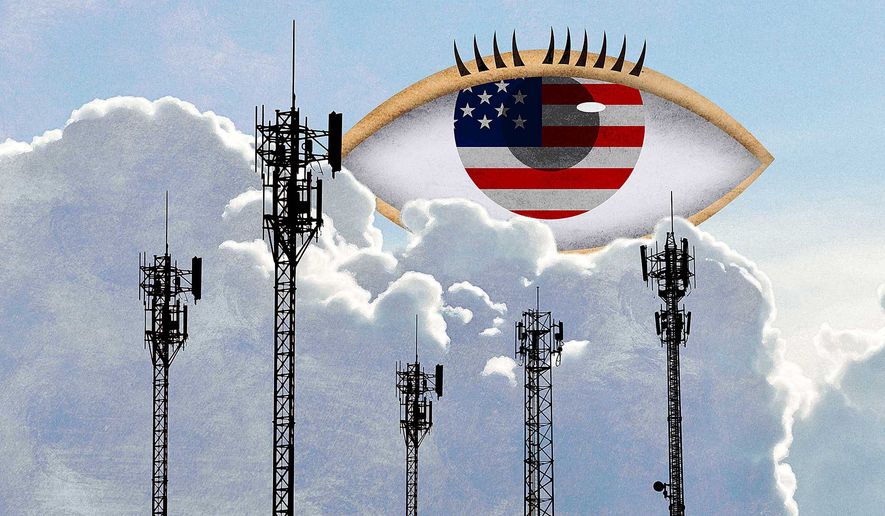OPINION:
A battle is brewing on Capitol Hill over the previous administration’s penchant for snooping on the opposition. Without discussion, lawmakers in the upper chamber slipped an 11-page provision into the resolution reopening the federal government. The legislative language protects the 100 members of the world’s most deliberative body — and nobody else — from weaponized surveillance.
House Speaker Mike Johnson is furious, and he intends to cancel the last-minute addition within the coming days. He called Senate Majority Leader John Thune, South Dakota Republican, to explain his irritation at being blindsided.
“I think he regretted the way it was done, and we had an honest conversation about that,” the Louisiana Republican said during a press conference. “I think that was way out of line. I don’t think that was the smart thing to do, the right thing to do, and the House is going to repeal that, and I’m going to expect our colleagues in the Senate to do the same thing.”
The Senate is understandably upset by the subpoenas of dubious legality issued by Jack Smith, the former “special counsel” of dubious legality. Yet the aggrieved solons neglected members of the House of Representatives, and the rest of America, who were also victims.
As it stands, only members of the upper chamber will sleep soundly knowing secret agents won’t be perusing their emails, Google documents and call records looking for dirt. Verizon, Google and other providers must inform the affected Senate office if they hand over any sensitive data. Such notice is no longer optional.
This is enforced by a stipulation retroactive to January 2022 authorizing senators to sue government employees who violate their privacy. If a judge agrees, they could recover up to $500,000 in damages, and rogue G-men and prosecutors would be barred from claiming immunity for their actions.
It’s as if senators forgot that Rep. Mike Kelly, Pennsylvania Republican, was on the same enemies list, along with prominent Republican individuals and organizations. Mr. Smith and his team executed 430 subpoenas through the Arctic Frost dragnet.
By going it alone, the Senate failed to correct obvious loopholes in its rushed attempt to fix a broken system. For instance, senators allow a judge to keep delaying notification by making a finding every 60 days that notice would “result in destruction of or tampering with evidence [or] result in intimidation of potential witnesses.”
That’s precisely what U.S. District Judge James “Jeb” Boasberg asserted in the gag order he issued to conceal spying on the phone records of Sen. Ted Cruz. Such safeguards are hollow given how many members of the D.C. bench have proved they are willing to sign off on any accusation against a Republican, no matter how absurd.
“Judge Boasberg put his robe down, stood up and said, ‘Sign me up’ to be part of the partisan vendetta against 20% of the Republicans in the Senate,” Mr. Cruz said. “That is a dereliction of duty and a violation of the judicial oath.”
House members couldn’t amend the new language without sending the bill back to the Senate for another cliffhanger vote that would have prolonged the shutdown. That’s unfortunate.
Congress shouldn’t be in the business of granting itself special privileges. If spying on a senator for partisan reasons is bad, it’s just as bad when the Justice Department and FBI engage in fishing expeditions against ordinary citizens.
Instead of canceling the Senate’s protections, Mr. Johnson ought to extend them to everyone.




Please read our comment policy before commenting.